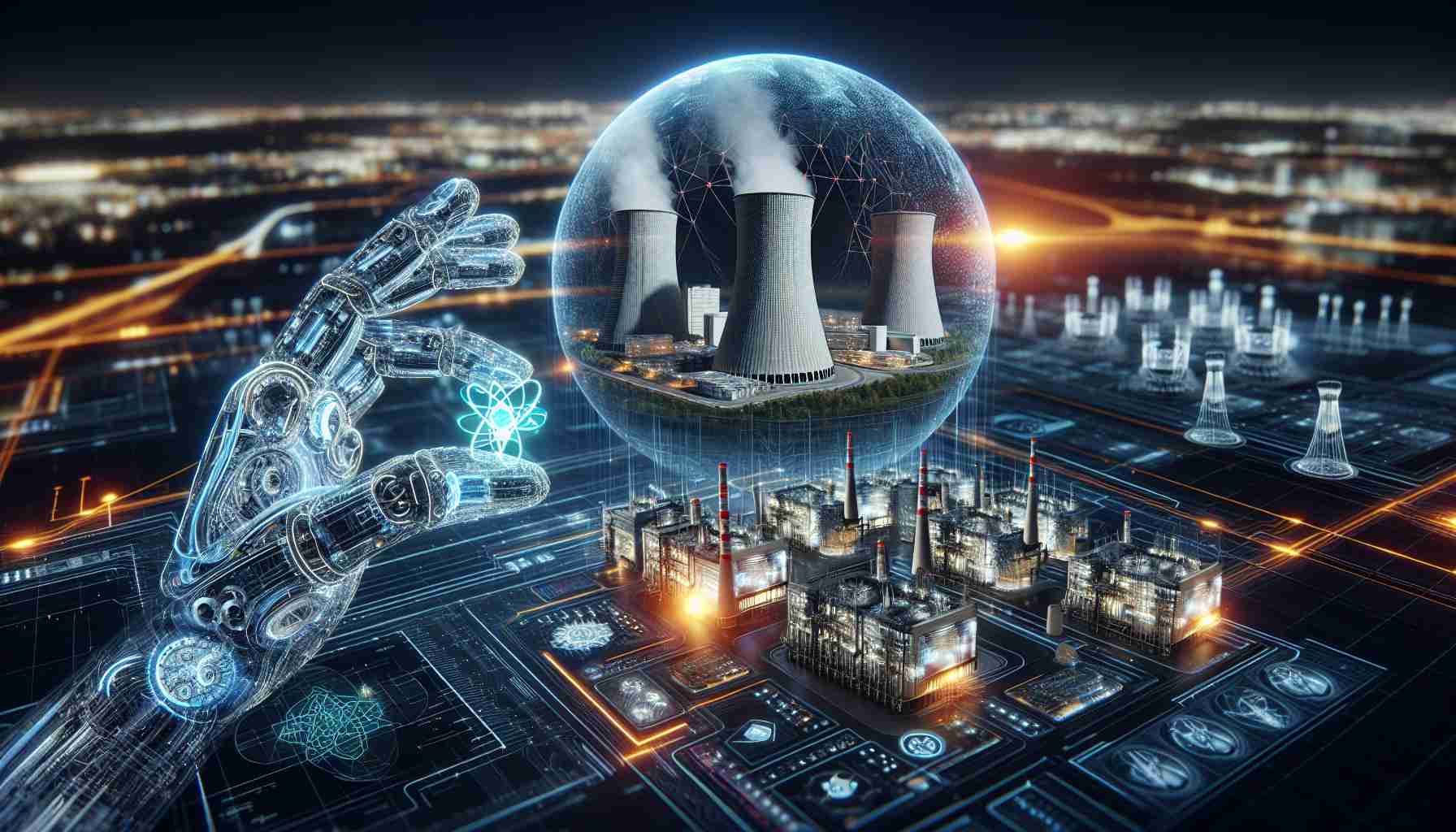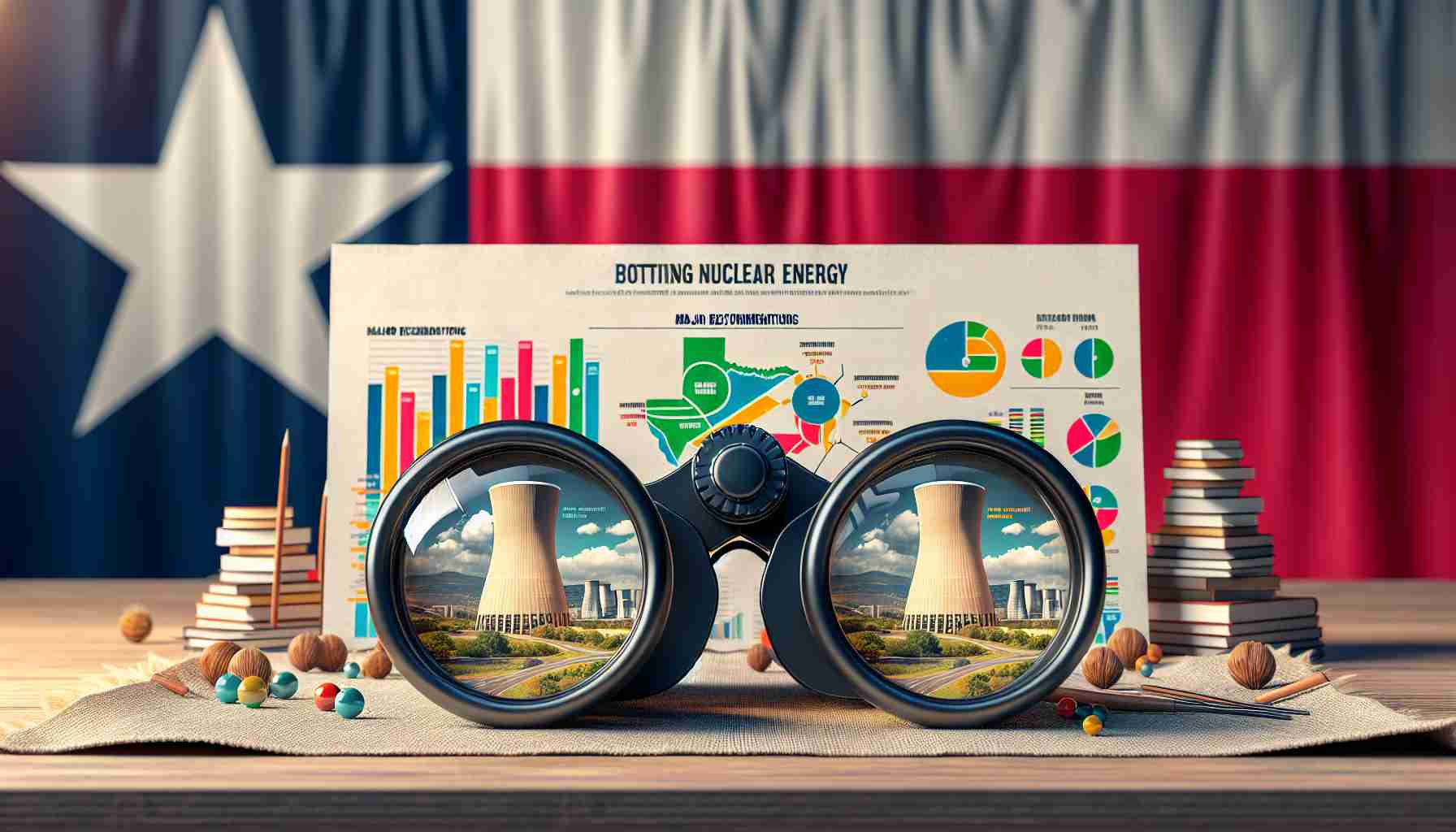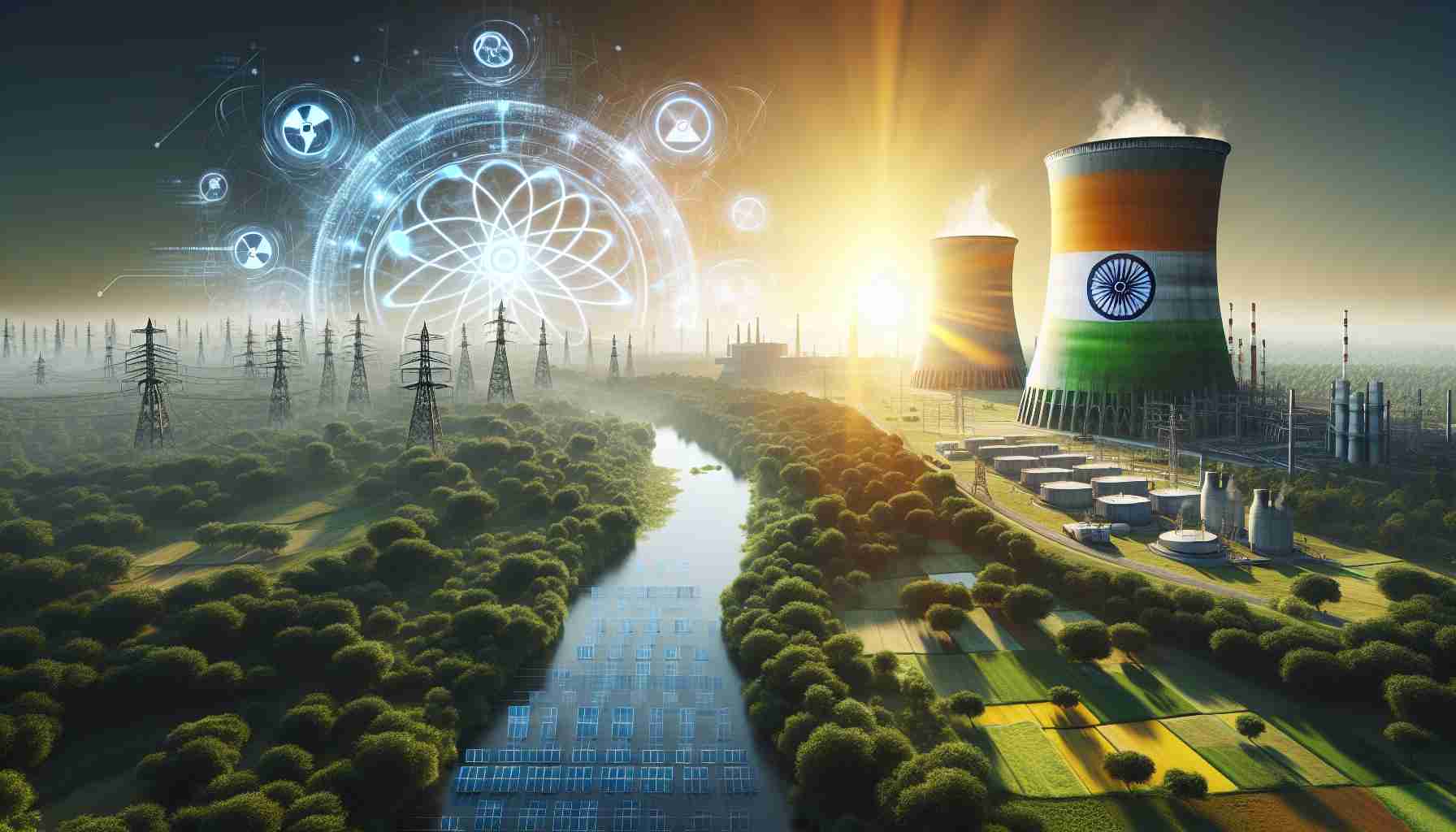The future of energy generation faces a critical question: As demand for electricity surges, particularly for data centers, nuclear energy projects are gaining traction. However, with the rise of artificial intelligence (AI) technology, concerns are surfacing about potential risks associated with employing AI in nuclear power operations.
Experts largely agree that there is minimal cause for alarm. A prominent analyst explained that while AI excels in analyzing vast data sets and identifying trends, the fundamental operations of a nuclear reactor are straightforward and do not require AI intervention. The existing safety control protocols in nuclear facilities were established long before the advent of AI.
In the United States, for a nuclear plant to integrate AI applications, they must receive approval from the Nuclear Regulatory Commission (NRC). Currently, no safety-related AI applications have been submitted for consideration. The NRC has spent time preparing its regulatory framework for the AI shift, ensuring that any updates do not compromise facility safety.
While past nuclear incidents, such as Chernobyl and Fukushima, dominate conversations about nuclear safety, data indicates a decline in the frequency of nuclear accidents. Regulatory reforms following these events have further solidified safety measures, illustrating the industry’s commitment to preventing future incidents.
As focus grows on innovative nuclear solutions, including small modular reactors, the balance between advanced technology and public safety remains a pivotal discussion point in the energy landscape.
AI and Nuclear Energy: A New Era or a Risky Gamble?
The intersection of artificial intelligence (AI) and nuclear energy presents fascinating implications for energy generation, safety protocols, and global energy policy. While the conversations around nuclear safety have historically been dominated by infamous disasters, the current landscape reveals a more complex picture, filled with both opportunities and challenges.
One intriguing aspect of this topic is the potential for AI to enhance operational efficiency in nuclear power plants without compromising safety. For instance, AI can be utilized in predictive maintenance, which allows for reduced downtime and cost savings. By analyzing patterns in equipment performance, AI can predict when components may fail and suggest timely interventions. This proactive approach not only extends the lifespan of the infrastructure but also ensures that energy generation remains uninterrupted, which is crucial as countries strive to meet growing electricity demands.
Moreover, the adoption of AI technologies can lead to data-driven decision-making in resource management and emergency response protocols. If implemented thoughtfully, such systems could enhance situational awareness during a nuclear incident, enabling quicker and more efficient responses. However, as nations like the United States navigate the regulatory landscape, the integration of AI must be balanced with public perception and trust.
Controversy arises when discussing public opinion on AI in nuclear settings. While many communities welcome the promise of increased efficiency, there are prevalent concerns about the robustness of AI systems. Skeptics argue that reliance on AI may introduce inherent risks, primarily if protocols are not thoroughly vetted. The debate also touches on ethical considerations: how much autonomy should AI have in decision-making processes within such critical infrastructures? This leads to questions about accountability in case of failures—who bears responsibility if an AI-driven system fails during a critical moment?
As countries like Japan and Germany pivot towards renewable energy sources post-Fukushima, the future role of nuclear power—and AI’s place within it—remains hotly debated. Can AI and nuclear energy make a compelling case for a sustainable future? Proponents argue that with the imminent strain on electricity grids due to rising energy demands, particularly from data-heavy technologies, developing AI-augmented nuclear capabilities could provide a viable solution. However, critics caution against overlooking the historical lessons learned from past nuclear incidents.
Globally, the integration of AI into nuclear energy could lead to competitive advantages for countries that successfully harness these technologies. This points to the importance of international collaboration in developing standardized protocols and regulations. Such cooperation can mitigate risks and foster innovation in safe energy production, ultimately impacting global markets and bilateral trade relations.
In conclusion, while the merging of AI and nuclear energy could yield substantial benefits in efficiency and safety, it is paramount that any advances are embraced with caution. Strong regulatory frameworks and open public dialogue will be key to navigating this complex landscape and ensuring that the pursuit of innovation does not compromise the core values of safety and accountability.
For more information on the nexus of technology and energy, visit nuclear energy insider.
The source of the article is from the blog elperiodicodearanjuez.es



